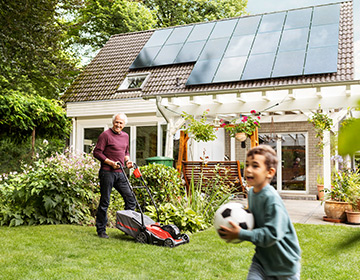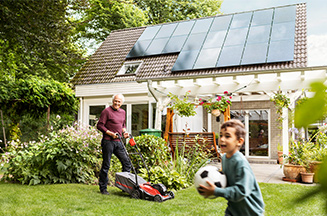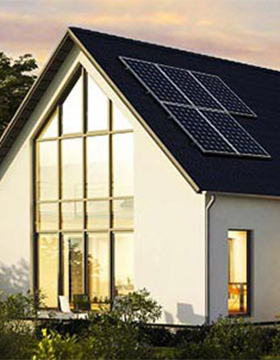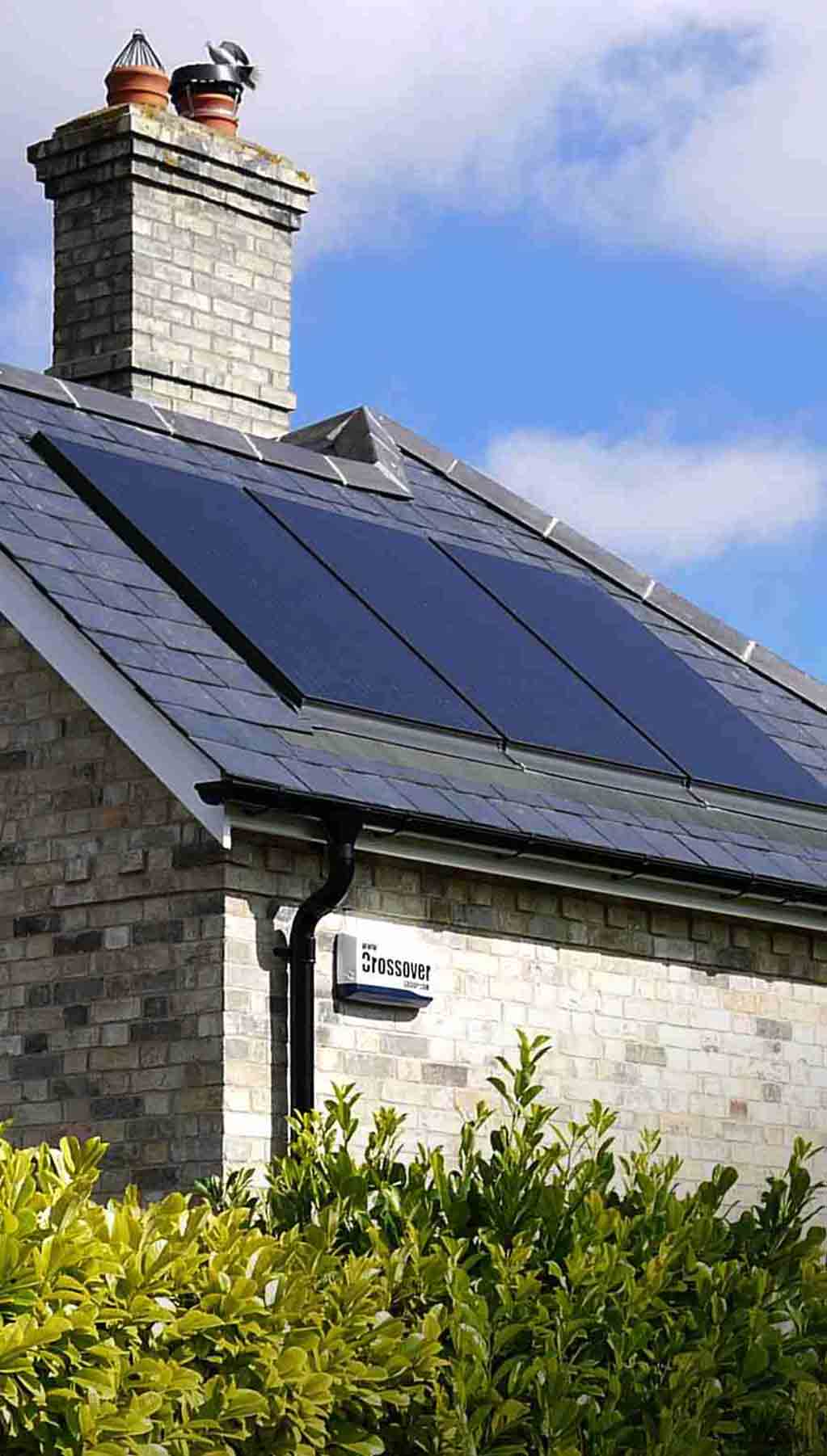
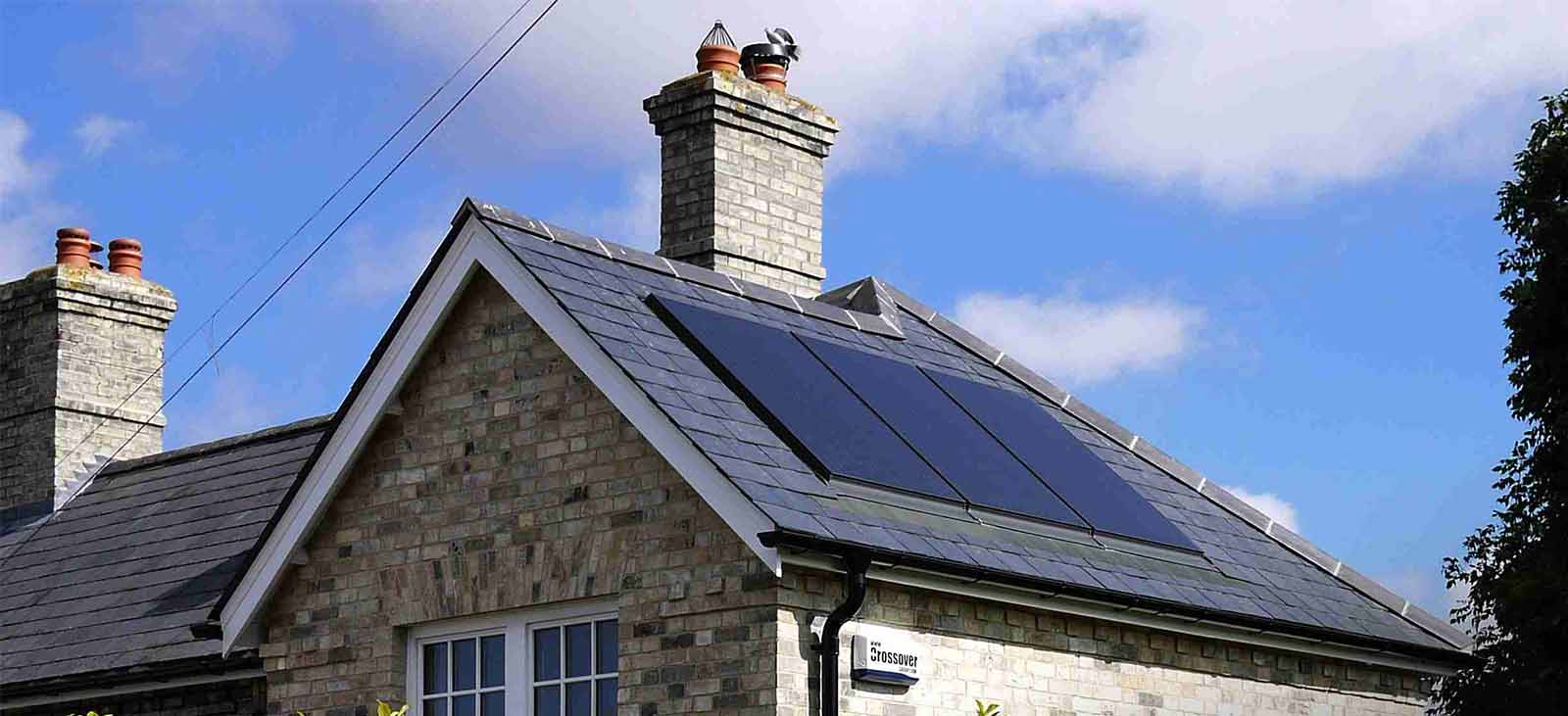
Looking after your solar panels
Solar panels are designed to be low maintenance
Three questions everyone asks
1. Are my solar panels generating as much energy as they should?
If we’ve installed your solar panels recently, you’ll see how much energy you’re generating on our app. But other, older systems don’t give you that instant feedback, which means you’ll have to keep an eye on your generation meter instead – it should be by your fuse board.
Exactly how much electricity your solar panels generate depends on how many panels you have, the direction they’re facing and whether they’re shaded by trees or buildings.
If you can find your MCS certificate (the company that installed your solar system should have given it to you) you’ll see an estimated annual generation figure. If your yearly generation figure falls a long way below that, you might have a problem somewhere in your system.
2. Cleaning Solar Panels - How do I do it?
You shouldn’t need to. They’re designed to be self-cleaning. And anyone who tells you otherwise is selling you something you might not need.
The panels are coated with a special coating, called a hydrophobic coating, which prevents water droplets sticking to the surface and instead as water falls off, it takes take dirt and debris with it. We generally have enough rain in the UK to ensure that if there’s any excess dirt on the panels, it’s washed away when it rains.
Occasionally it might be necessary to clean your panels, such as during an excessively dry period with little or no rain, if you live in a particularly dusty or sandy area, or if there’s a build-up of dirt such as bird droppings on your panels. If this is the case, my advice would be to use a local specialist cleaning company who will come along with the right equipment to do the job effectively.
3. Can I use solar energy at night?
Yes, but only if your system has a battery. Batteries store up the energy you generate during the day, meaning you can keep using it at night (and keep more of that energy for yourself rather than sending it back to the grid).
People often ask us how to look after their batteries. Like the rest of our solar systems, your batteries more or less look after themselves. Of course, they also come with the latest warranties and guarantees if anything does go wrong. Our solar panels (and the people installing them) are certified by MCS, which means they always work to the industry standard.
Get in touch about fitting a battery
Insider tip 2: If you don’t have a battery yet, save money by setting a timer to use your washing machine and dishwasher during the day. Then they can use the free electricity your solar panels are generating.
